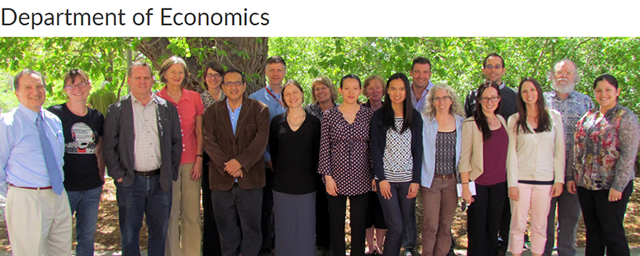
Economics ETDs
Publication Date
2-1-2012
Abstract
State Corporate Income Taxes (CIT) generally conform to the basic design and provisions of the federal tax, which results in corporate income being taxed twice, once at the corporate level as it is earned, and again at the individual shareholder level. Most state corporate income taxes also incorporate at least some of the federal provisions that narrow the corporate income tax base, such as bonus depreciation and the domestic production activities deduction. State corporate income taxes also have very high compliance costs relative to revenue, and are a highly volatile source of state revenue. In addition, state corporate income taxes are generally apportioned among states, using at least one of the three traditional factors: property, payroll and sales. Such apportionment results in a highly uneven tax on the apportionment factors that is unrelated to benefits provided to corporations by state and local governments. I propose replacing the state corporate income tax with a franchise tax using property, payroll and sales above specified threshold levels. The proposal would remove the distortions inherent in the current corporate income tax, substantially reduce compliance costs, relate corporate taxes more closely with benefits corporations receive from government expenditures and provide a much more stable source of state revenue. The uncertain incidence of state corporate income tax has been argued for the past few decades, although economists have devoted relatively little attention to the incidence of state franchise taxes. I argue that state corporate franchise taxes are borne by the factors in the traditional three-factor apportionment formula, i.e., property, sales and payroll. I argue that state franchise taxes are likely to be borne by residents of the taxing state as consumers, labor, capital or land owners and a tax would be passed on to the consumers in the taxing state and not exported to consumers throughout the nation. I further argue that the factor(s) that are least likely to escape the tax through migration are taxed. I note that from an economic rents perspective the incidence of state franchise taxes depends on the nature of rents collected, to extent that ideas and not goods are produced by franchise taxpayers; the franchise tax is a tax on labor. Also, historically, corporate income tax revenues are both volatile and difficult to predict, and increase uncertainty in state budgeting. State corporate income taxes revenues are extremely sensitive to economic cycles and thus are subject to considerable uncertainty. During downturns, state CIT revenues are pro-cyclical' and exacerbate the drop in state revenues. I argue that a franchise tax based on the three traditional apportionment factors, i.e. property, sales and payroll, would not only generate a higher annual revenue but also would be much more stable, helping to reduce uncertainty from budget forecasting and decision making.
Degree Name
Economics
Level of Degree
Doctoral
Department Name
Department of Economics
First Committee Member (Chair)
Ganderton, Philip
Second Committee Member
Fontenla, Matias
Third Committee Member
Hansen, Wendy
Project Sponsors
Taxation and Revenue Department, State of New Mexico
Language
English
Keywords
Corporate, Income Tax, Franchise Tax
Document Type
Dissertation
Recommended Citation
Chary, Swaroop. "A New Approach To State Corporate Taxation." (2012). https://digitalrepository.unm.edu/econ_etds/5
